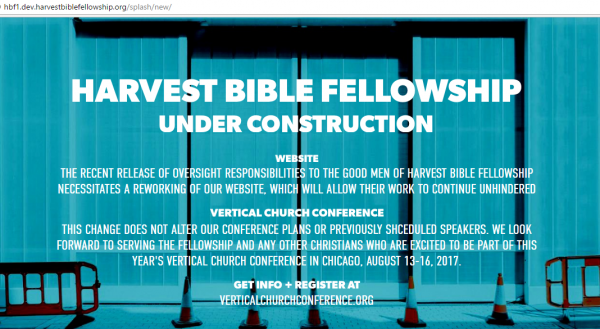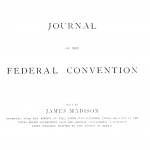Summary
Much of the session was taken by oration from Alexander Hamilton.
Influences on the Constitution
Hamilton made a passionate appeal for a strong national government. He said his theory is proved by experience. To what experience did he refer? The Bible? Israel? Hamilton did not refer to any biblical model, but rather other governments through history.
Theory is in this case fully confirmed by experience. The Amphictyonic Council had, it would seem, ample powers for general purposes. It had, in particular, the power of fining and using force against, delinquent members. What was the consequence? Their decrees were mere signals of war. The Phocian war is a striking example of it. Philip at length, taking advantage of their disunion, and insinuating himself into their councils, made himself master of their fortunes. The German confederacy affords another lesson. The authority of Charlemagne seemed to be as great as could be necessary. The great feudal chiefs, however, exercising their local sovereignties, soon felt the spirit, and found the means, of encroachments, which reduced the Imperial authority to a nominal sovereignty. The Diet has succeeded, which, though aided by a Prince at its head, of great authority independently of his imperial attributes, is a striking illustration of the weakness of confederated governments. Other examples instruct us in the same truth. The Swiss Cantons have scarce any union at all, and have been more than once at war with one another. How then are all these evils to be avoided? Only by such a complete sovereignty in the General Government as will turn all the strong principles and passions above-mentioned on its side. Does the scheme of New Jersey produce this effect? Does it afford any substantial remedy whatever? On the contrary, it labors under great defects, and the defect of some of its provisions will destroy the efficacy of others.
Hamilton leaned toward the British government as a model.
In his private opinion, he had no scruple in declaring, supported as he was by the opinion of so many of the wise and good, that the British Government was the best in the world: and that he doubted much whether any thing short of it would do in America. He hoped gentlemen of different opinions would bear with him in this, and begged them to recollect the change of opinion on this subject which had taken place, and was still going on. It was once thought, that the power of Congress was amply sufficient to secure the end of their institution. The error was now seen by every one. The members most tenacious of republicanism, he observed, were as loud as any in declaiming against the vices of democracy. This progress of the public mind led him to anticipate the time, when others as well as himself, would join in the praise bestowed by Mr. NECKAR on the British Constitution, namely, that it is the only government in the world “which unites public strength with individual security.” In every community where industry is encouraged, there will be a division of it into the few and the many. Hence, separate interests will arise. There will be debtors and creditors, &c. Give all power to the many, they will oppress the few. Give all power to the few, they will oppress the many. Both, therefore, ought to have the power, that each may defend itself against the other. To the want of this check we owe our paper-money, instalment laws, &c. To the proper adjustment of it the British owe the excellence of their constitution. Their House of Lords is a most noble institution. Having nothing to hope for by a change, and a sufficient interest, by means of their property, in being faithful to the national interest, they form a permanent barrier against every pernicious innovation, whether attempted on the part of the Crown or of the Commons. No temporary Senate will have firmness enough to answer the purpose. The Senate of Maryland which seems to be so much appealed to, has not yet been sufficiently tried.
Hamilton favored life time appointments as a means of insuring stability.
Was not this giving up the merits of the question; for can there be a good government without a good Executive? The English model was the only good one on this subject. The hereditary interest of the King was so interwoven with that of the nation, and his personal emolument so great, that he was placed above the danger of being corrupted from abroad; and at the same time was both sufficiently independent and sufficiently controlled, to answer the purpose of the institution at home. One of the weak sides of republics was their being liable to foreign influence and corruption. Men of little character, acquiring great power, become easily the tools of intermeddling neighbors. Sweden was a striking instance. The French and English had each their parties during the late revolution, which was effected by the predominant influence of the former. What is the inference from all these observations? That we ought to go as far, in order to attain stability and permanency, as republican principles will admit. Let one branch of the Legislature hold their places for life, or at least during good behavior. Let the Executive also, be for life.
Finally, he mentioned Rome and Europe as offering beneficial information.
The election of Roman Emperors was made by the army. In Poland the election is made by great rival princes, with independent power, and ample means of raising commotions. In the German Empire, the appointment is made by the Electors and Princes, who have equal motives and means for exciting cabals and parties. Might not such a mode of election be devised among ourselves, as will defend the community against these effects in any dangerous degree?
Looking at the illustrations of past governments, Hamilton concluded that a strong national government was the solution to the problems of the Confederation.
 1787 Constitutional Convention Series
1787 Constitutional Convention Series
To read my series examining the proceedings of the Constitution Convention, click here. In this series, I am writing about any obvious influences on the development of the Constitution which were mentioned by the delegates to the Convention. Specifically, I am testing David Barton’s claim that “every clause” of the Constitution is based on biblical principles. Thus far, I have found nothing supporting the claim. However, stay tuned, the series will run until mid-September.
Constitutional Convention Series (click the link)
To follow on social media, click the following links:
Facebook (blog posts and news)
Facebook (Getting Jefferson Right – history news)
Twitter





